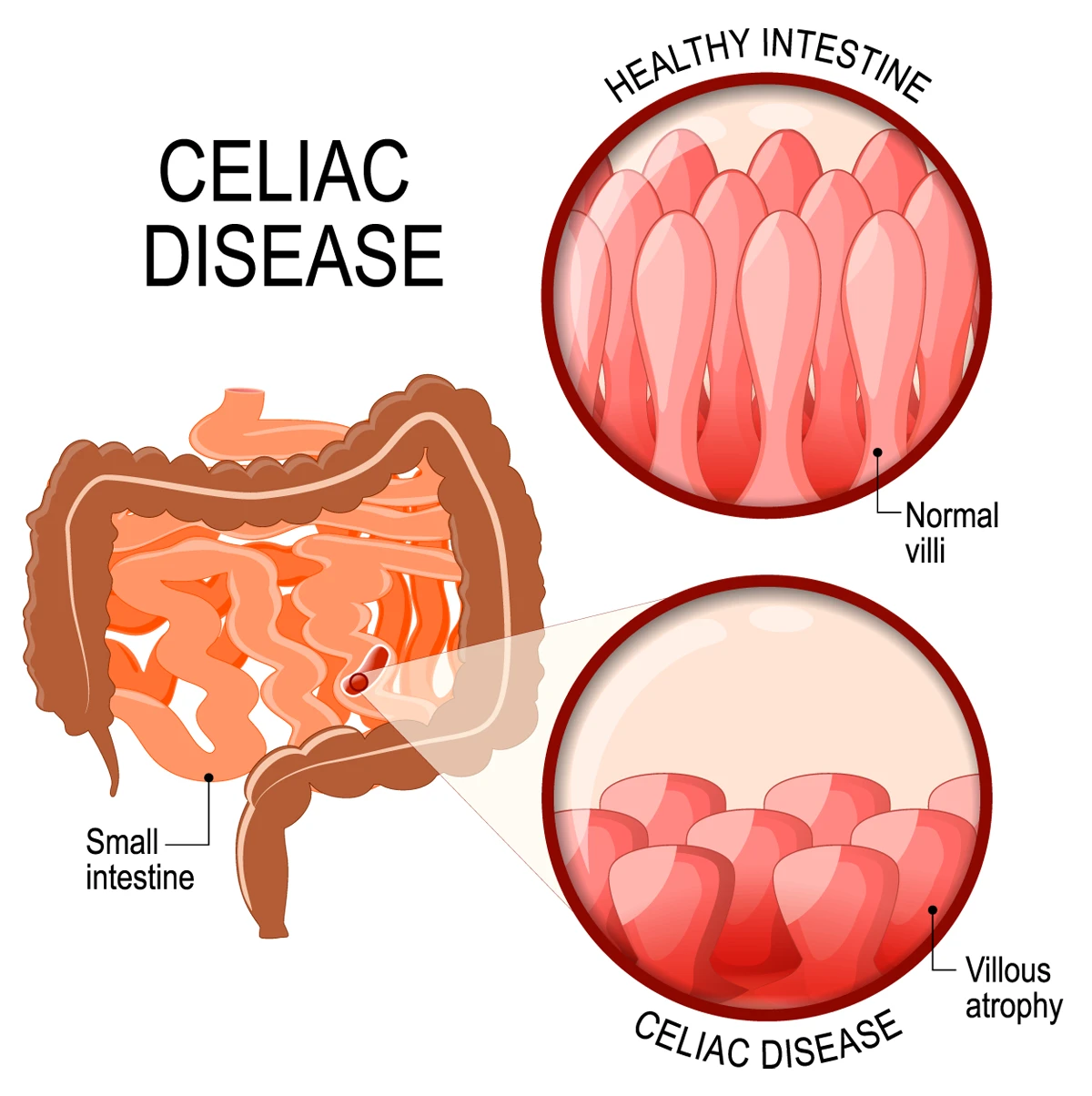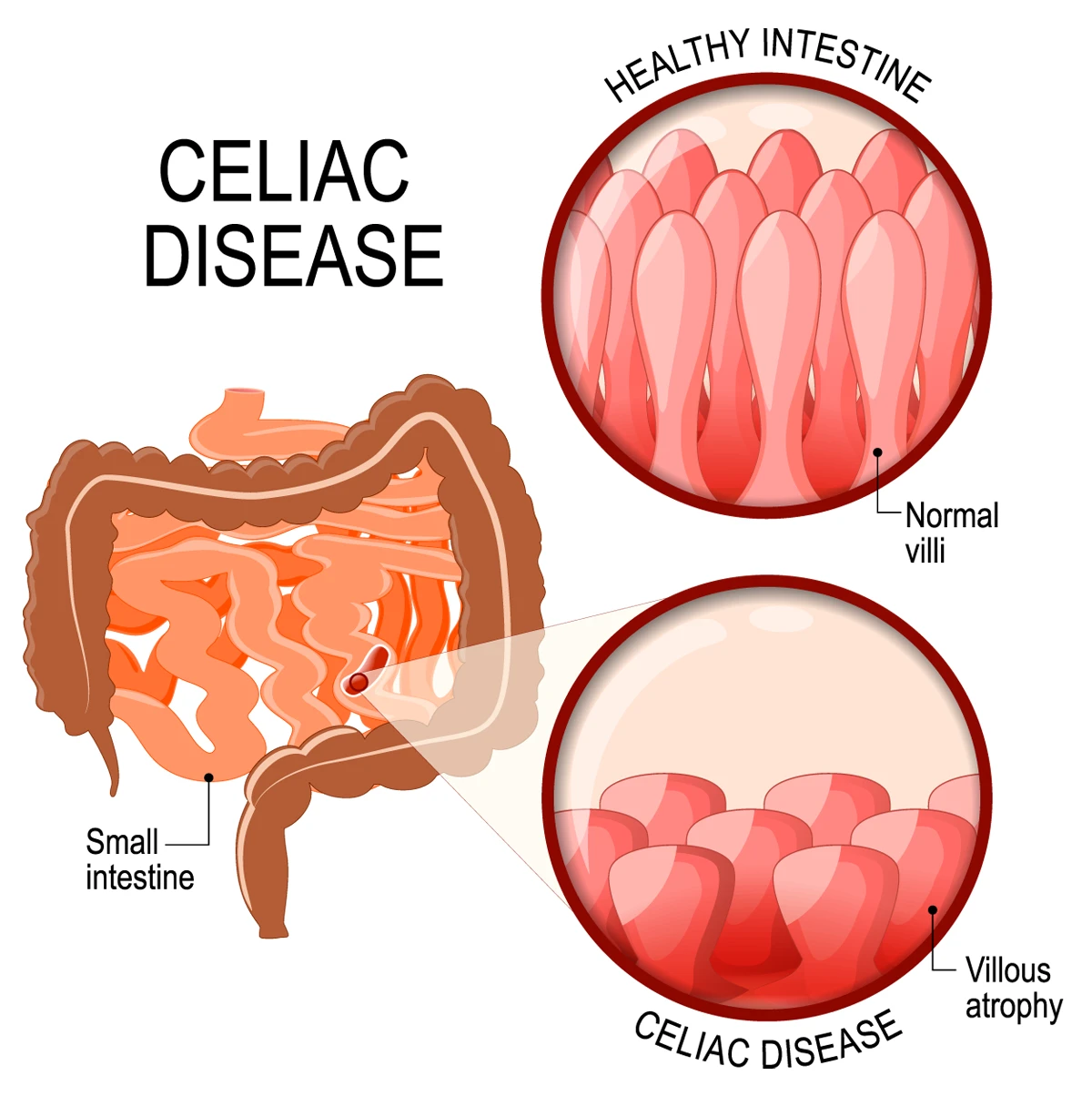Headline CTA
https://www.advocatehealth.com/Testing c17

Celiac disease causes atrophy of the villi within the small intestine.
Celiac disease is an autoimmune disorder that damages your small intestine when you consume gluten. Gluten is a protein found in grains like barley, rye and wheat. Some medications, toothpastes and other products also contain gluten.
When you have celiac disease, your immune system sees gluten as a threat. It makes antibodies that attack gluten molecules. The resulting inflammation damages, and sometimes destroys, tiny fingerlike protrusions (villi) in the lining of your small intestine (mucosa).
Causes of celiac disease
A gene change (mutation) that runs in families causes most cases of celiac disease. But not everyone who inherits a changed gene develops this condition. Some people with celiac disease don’t have a known gene mutation.
What is celiac disease?

Celiac disease causes atrophy of the villi within the small intestine.
Celiac disease is an autoimmune disorder that damages your small intestine when you consume gluten. Gluten is a protein found in grains like barley, rye and wheat. Some medications, toothpastes and other products also contain gluten.
When you have celiac disease, your immune system sees gluten as a threat. It makes antibodies that attack gluten molecules. The resulting inflammation damages, and sometimes destroys, tiny fingerlike protrusions (villi) in the lining of your small intestine (mucosa).
Villi help your small intestine absorb nutrients from foods, which enter your bloodstream. When villi are damaged, it’s hard to get the nutrients your body needs, no matter how much food you eat.
Causes of celiac disease
A gene change (mutation) that runs in families causes most cases of celiac disease. But not everyone who inherits a changed gene develops this condition. Some people with celiac disease don’t have a known gene mutation.
